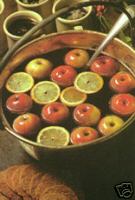December 26 is called both St. Stephen's Day and Boxing Day. The former designation marks the death of the first Christian martyr, and includes ancient traditions involving horses. "S. Stevens-day it is the custome for all horses to be let bloud and drench'd," reads one old book. Yet there is a record of at least one gentleman refusing the bloodletting offer. "He answered, no, sirra, my horse is not diseas'd of the fashions." By the end of the 19th century, this gentleman's skepticism had spread to the medical community, both horse and human.

Less gruesome customs are connected with the day, perhaps best remembered in the Good King Wenceslas carol. Acts of charity are shown to the poor man gathering fuel, and this tradition was cemented into place by the second term for Dec. 26. Historically, Boxing Day was a day for distributing gifts specifically to tradesmen and the poor. Sometimes, the presents and money would flow forth as a matter of course. Other times, a little prompting helped to open the coffers.
In Malcolm's London, an anecdote from 1731 reveals the annoyance felt by one fellow. While he readily gave Christmas-boxes to his "brewer, baker, and other tradesmen," an "innumerable tribe" of those tradesmen's servants also turned up at his doorstep for their gifts, too. His disgust was complete after going into town with a friend, in order to see how the money was spent. At one alehouse, roast beef and plum pudding were on hand, but a card game ruined the good cheer when a fight broke out. At a barn, the pair of friends found themselves surrounded by a hundred people, some in costume, dancing "to the music of two sorry fiddles."
"This horrid place seemed to be a complete nursery to the gallows," writes the fellow, who rejoices when the police come to break up the party. No word on whether this Scrooge ever loosened up, but in Yorkshire, the celebration and charity of the season continued without fail:
On the feast of St. Stephen large goose pies are made, all of which they distribute among their needy neighbours, except one which is carefully laid up, and not tasted till the purification of the virgin, called Candlemas. [EDBv1]

